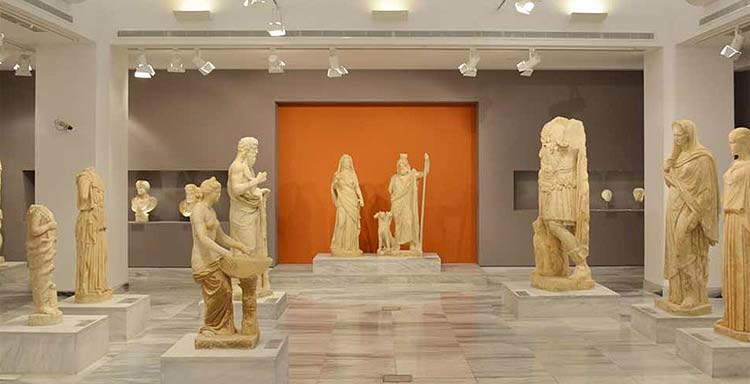Five major museums in Greece are preparing to become autonomous institutions, along the lines of what happened in Italy with the 2014 Franceschini reform. And controversy mounts in the country. What’s happening. On Monday, a bill was approved by the Greek Parliament that will turn five major museums (the National Archaeological Museum of Athens, the Byzantine and Christian Museum of Athens, the Archaeological Museum of Thessaloniki, the Museum of Byzantine Culture of Thessaloniki, and the Archaeological Museum of Candia on the island of Crete) into NPDDs (Nomikó Prósopo DÄ«mosiou Dikaiou, “Legal Person under Public Law”), i.e., public entities with financial and managerial autonomy. They will thus acquire the same status that is currently the preserve of only one museum in Greece, the Acropolis Museum in Athens.
This is not a new discussion: this hypothesis was already being discussed in 2021, but the difference is that now the proposal has materialized and the legislative process is moving forward expeditiously. The rationale for the reform was explained at length by Culture Minister Lina Mendoni, who emphasized on Feb. 3, “the need for a change in the way public museums are administered, as well as the expansion of their activities and actions always within the framework of public policies, elaborated by the Ministry of Culture and Sports and archaeological legislation.” By untying the five museums from the central administration, Greece intends to make them more efficient and more palatable with regard to private sponsorship, as well as autonomous in decisions regarding the lending of works, and also make them capable of pursuing autonomous communication and institutional collaboration policies.
The reform will not privatize museums, which will remain in the public domain, must continue to apply the provisions of archaeological legislation, will be controlled and supervised by the state, and will continue to have the same staff. A mechanism is then introduced that facilitates loans by the new autonomous museums, which, Mendoni explained, “applies to cases in which a museum in our country lends to a museum in another country, or borrows from it, for exhibition purposes, one or more cultural assets, depending on the programming. Our state may, upon the advice of a special committee, assume the burden of compensating the lending museum in the event of damage or destruction or loss of the loaned items. With this provision, the lending museum is exempted from paying private insurance premiums, which it had to pay, in order for the cultural property to travel, where it was to be exhibited. The same is provided in the case of internal loans between Greek museums.”
The reform, however, has sparked widespread controversy and even led to the declaration of strikes in the museums affected by the new measures over the past weekend, called by the Syllogos Ellénon Archaiológon, the Association of Greek Archaeologists, which is leading the protest. The main reasons for opposition? There is, first of all, the fear that museums will get out of the control of technicians, since they will no longer be administered by civil servants, but by boards of trustees, which could parameterize museum success on purely numerical data. There are also fears that autonomy will open the door to reckless borrowing by museums. For critics, the exit of museums from central control will only fragment cultural heritage protection. Moreover, according to the Association of Greek Archaeologists, the idea of entrusting the management of assets that are the property of the Greek people to entities that are indeed public, but not state-owned such as the NPDDs, is incompatible with the Constitution. And again, according to the Association, the reform opens up the “commercialization of museums, their financing as quasi-businesses for profit at the expense of the scientific, didactic, educational and recreational character of Museums, at the expense of equal access for all to the public good of culture.” Critics also include former Greek Prime Minister Alexis Tsipras, leader of the Syriza party, who abstained during the vote on the law.
The Association promises to put up a fight and calls on all parties in Parliament to immediately commit to repealing the law. But the reform now seems well underway.
Image: a room in the Archaeological Museum of Candia. Photo: Visit Crete
 |
| Greece, controversy over museum reform similar to Italy's 2014 reform |
Warning: the translation into English of the original Italian article was created using automatic tools. We undertake to review all articles, but we do not guarantee the total absence of inaccuracies in the translation due to the program. You can find the original by clicking on the ITA button. If you find any mistake,please contact us.